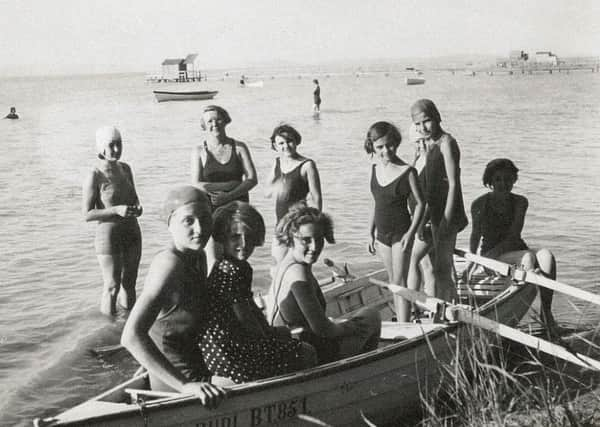Auschwitz Scots heroine's will is discovered in Capital church


Jane Haining, a Church of Scotland missionary who was forced into slave labour, died in Auschwitz in 1944, aged 47, after refusing to abandon the Jewish girls in her care at a home run by the Scottish Mission in Budapest, Hungary.
Scots missionaries were advised to return home from Europe, but Haining, a farmer’s daughter from Dunscore in Dumfriesshire, refused, and wrote: “If these children need me in days of sunshine, how much more do they need me in days of darkness?”
Advertisement
Hide AdAdvertisement
Hide AdHaining managed to keep the girls safe for four years before being betrayed.
Known as “Miss Haining” to her girls, the Scot was arrested by the Gestapo at the Mission and charged with eight offences including weeping when seeing the girls wearing yellow stars, listening to the BBC and sending British prisoners of war parcels.
The papers telling the extraordinarily moving story of prisoner 79467 were found in the World Mission Council’s archives at the Kirk’s headquarters in George Street.
They also contain a translation of the last letter she wrote two days before she died and correspondence showing the efforts by Bishop Laszlo Ravasz to try to secure her release.
This year marks the 175th anniversary of the Church of Scotland Mission in Budapest, a city which had a large middle-class Jewish population in the 1930s.
Rev Ian Alexander, secretary of the Church of Scotland World Mission Council, who would like to see Haining’s story included in the school curriculum, said: “Jane Haining was a matron in the girl’s home of the Scottish Mission and her story is one of heroism and personal sacrifice.
“The most poignant discovery is her last will and testament, which says ‘to be opened in the event of my death’ and dated July 1942.
“It states, in her own handwriting, ‘I, Jane Mathieson Haining being in my right mind, do hereby with my own hand give directions for the disposal of my possessions in the event of my death’.
Advertisement
Hide AdAdvertisement
Hide Ad“She lays out what her legacies are to be and who is to receive her wireless, typewriter, fur coat and watches.
“It is a wonderful document and tremendously exciting to have something Jane Haining herself has written. It gives a sense she was fully aware of the risks she was taking”
Rev Susan Brown, minister at Dornoch Cathedral and convener of the Europe Committee of the World Mission Council, said: “In Budapest, I’ve come across the street named after her on the Pest side of the river Danube and then seen her name engraved on a memorial beside the tree of remembrance in the Synagogue.
“You realise the impact this ordinary but courageous young woman has made on the city.”
The new material is to be handed over to the National Library of Scotland.